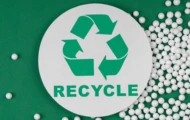Plastic pollution has become a significant problem in Nigeria. Urban centers are littered with single-use plastics and other plastic products, while rural areas also suffer from plastic waste. This not only mars the landscape but also degrades the environment and clogs drainage systems. The local, state, and federal governments must urgently implement comprehensive policies to reduce indiscriminate plastic disposal.
The United States Agency for International Development recently highlighted that Nigeria is the ninth-highest contributor to global plastic pollution, producing 2.5 million tonnes of plastic waste annually, with 88 percent not being recycled.
According to the Mismanaged Waste Index 2024 by the World Population Review, Nigeria’s status is “very high.” The country accounts for 4.5 percent of global plastic consumption rates and imports 960,000 tonnes of plastics while producing another 935,800 tonnes domestically. It releases approximately 27,685 tonnes of this waste into waterways.

USAID’s Mission Director to Nigeria, Melissa Jones, warned that excess plastic waste threatens ecosystems and public health. She suggested that recycling could significantly reduce demand for new raw materials by up to 90 percent and cut greenhouse emissions by about a quarter.
Jones added that an effective recycling value chain—from collection through processing—could create jobs and provide sustainable income for residents.
Rapid urbanization has exacerbated Nigeria’s plastic waste issue in cities like Lagos, Port Harcourt, and Abuja where streets are strewn with sachet water nylons and Styrofoam food packaging due to their convenience and affordability. SMEs as well as local multinational companies contribute further by using these materials extensively.
Improper waste disposal systems worsen this menace; many states lack efficient structures while citizens often dispose of refuse irresponsibly—in open spaces or flowing gutters—or burn it outrightly causing toxic atmospheres leading respiratory illnesses among others issues such skin diseases etc..
In rural areas too farmers face challenges due contamination affecting agriculture verve & fishermen alike threatening food security along tourism potential sabotaged via microplastics disrupting life cycles early death extinction marine lives rapid soil degradation experienced farmers eventually…
Health experts warn serious health risks posed include endocrine disruption weight gain insulin resistance infertility cancer inflammation genotoxicity oxidative stress apoptosis necrosis cardiovascular diseases inflammatory bowel disease diabetes rheumatoid arthritis stroke autoimmune conditions resulting presence microplastics within human bodies…

Government should engage NGOs community leaders corporate stakeholders tackle menace effectively sensitizing public need preserve environment driving behavioral change programs launching enforcing environmentally friendly policies exploring productive ways recycle various industries fashion furniture interior design motor construction sectors encouraging manufacturing recyclable instead non-recyclable ones curbing frequency innovative policy measures…
States can learn from Lagos State Government which banned Styrofoam single-plastic use earlier year Oyo State announced similar ban although germane viable alternatives sought provided enforcement environmental laws shouldn’t knee-jerk approach strategies constantly sensitizing incentivising cultivating sustainable management culture alternatives edible leaves bottles tin cans revitalized accordingly UN states takes between twenty five hundred years decompose never totally degrading said billion produced last thirteen years twelve incinerated nine recycled rest deposited landfills waterways Asia largest contributor eighty-one per cent globally posing significant risks marine ecosystems wildlife human health fish ingest entangled debris injury suffocation death harmful chemicals leaking threatening quality ecosystem Ellen MacArthur Foundation estimates more than fish weight oceans current trends continue Environmental Science Technology estimates fifteen fifty-one trillion particles weighing ninety-three thousand two hundred thirty-six metric tons economic costs substantial Pew Charitable Trusts SYSTEMIQ estimated cost reach $2 trillion mitigating explore models Rwanda Kenya Denmark Taiwan Germany deployed reducing implemented strict bans providing biodegradable alternative solutions investing paper bags other materials followed suit banning manufacture importation making progress elsewhere extensive reforms reduction prevention circular economy principles extended producer responsibility program dual system separation organic inorganic wastes deposit refund scheme rewarding responsible disposal prioritise safeguarding over pecuniary gains…
May not be reproduced without permission:Rumtoo Recycling Machinery » Nigeria Must Urgently Address Plastic Pollution

 Rumtoo Recycling Machinery
Rumtoo Recycling Machinery Contact Us
Contact Us 